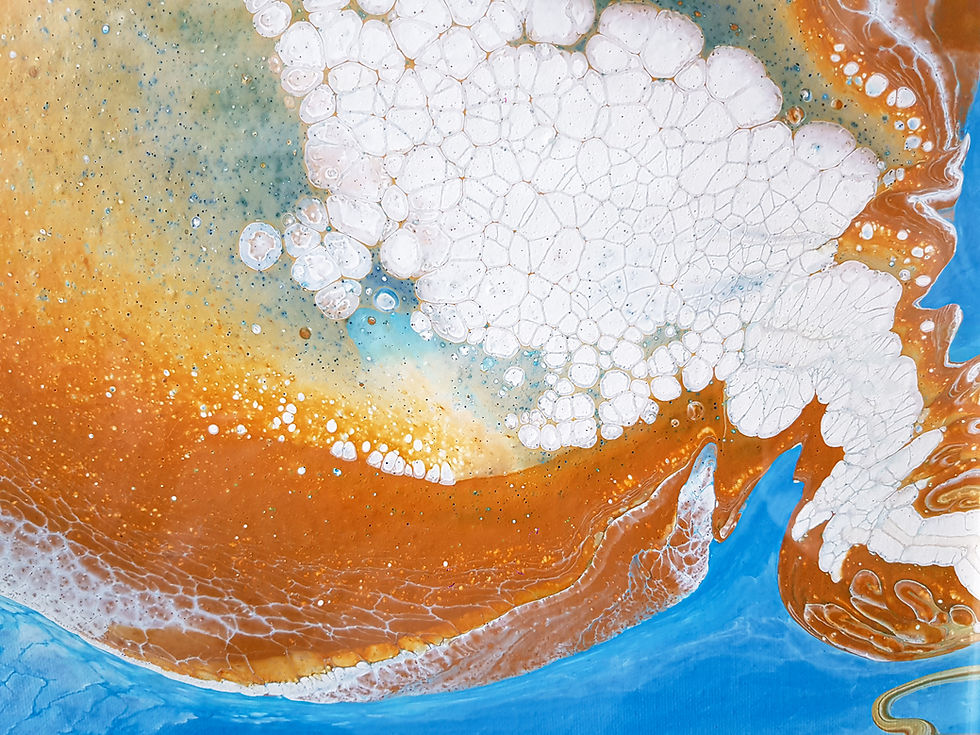ABOUT BODY ODOUR
- Tien Nguyen

- Apr 2
- 3 min read
Updated: Apr 11
FACTS:
Dermatologists generally agree that body odour (bromhidrosis) results from bacterial interaction with sweat, particularly from apocrine glands.
Sweat factor
Thick sweat from apocrine glands is protein rich which bacteria break down into odour – causing compounds. This is the main contributor to body odour. Skin bacteria (Corynebacterium, Staphylococcus, Micrococcus) metabolise sweat components into volatile, odorous compounds – isovaleric acid (cheesy smell) and 3-methyl-2-hexenoic acid (sweaty smell).
Sweat from eccrine glands is watery and odourless which the body produces for cooling of the skin. Excessive of this odourless sweat will cause bacterial overgrowth and this will eventually lead to strong body odour.
Bacterial overgrowth
Poor hygiene allows bacteria to multiply and produce odour.
Skin conditions with severe dysbiosis – imbalance of skin microbiota – can cause odour due to overgrowth of odour-causing bacteria.
Skin symbiosis and body odour
Body odour is caused by bacterial metabolism of sweat, particularly from apocrine glands. In a healthy skin microbiome i.e. in symbiosis, beneficial bacteria (e.g., Staphylococcus epidermidis) help regulate odour-producing bacteria (e.g., Corynebacterium and Micrococcus). If dysbiosis occurs sweat is broken down into volatile, odorous compounds by these bacteria.
In an ideal symbiotic state, beneficial bacteria would keep odour-causing microbes in check, preventing excessive odour production. Some beneficial bacteria even produce natural antimicrobial peptides that suppress odour-producing bacteria.
Studies show that probiotic and microbiome-friendly skincare can reduce body odour.
Skin dysbiosis and excessive sweating – the negative loop
An imbalance in microbial populations can potentially contribute to increased sweating, via many possible mechanisms:
Dysbiosis lead to overgrowth of certain bacteria like Staphylococcus, Corynebacterium, Cutibacterium. These bacteria naturally inhabit the skin, but overgrowth due to dysbiosis can cause irritation and inflammation of sweat glands which cause increased sweating. Bacterial overgrowth also causes irritation and inflammation of the skin, which might trigger excessive sweating as part of the skin’s stress response.
The skin has a direct connection to the autonomic nervous system, which controls sweating. Inflammation from dysbiosis might stimulate nerve endings, increasing local sweating.
Microbes thrive in moist and warm environment, excessive sweating helps more dysbiosis, more bacterial overgrowth which then causes more sweating. The loop is established.
Diet factor
Spicy foods, garlic, onions, alcohol, and red meat can make sweat more pungent.
Medical Conditions
Medical conditions like diabetes, kidney disease, liver disease or metabolic disorders can cause a distinct body smell.

APPLICATION:
The treatment should focus on restoring skin symbiosis, improving personal hygiene and reducing sweat.
Restoring symbiosis
Researches show that microbiome friendly skin care can reduce body odour. Daily use of Gentle Skin Wash and Microbiome Friendly Moisturise such as BHC Skincare or Laroche Posay will help to maintain an ideal symbiosis of the skin.
There are likely hundreds of billions of microorganisms in both armpits. An overgrowth of harmful bacteria in the area can cause serious body odour. Topical lotion with the ability to kill odour-producing-microbes and to restore the skin natural balance is the kind of therapy that treats the cause, while deodorants are symptoms management.
2. Practice Proper Hygiene daily
There is a huge difference between having a shower every day and a Proper Hygiene Practice daily. Shower everyday even twice a day in an improper way can cause dysbiosis rather than restoring symbiosis.
3. Sensible diet
Spicy foods are tasty, but do not overconsume these spicy foods, garlic, onions, alcohol, and red meat.
4. The use of antiperspirants and deodorants
While these products can help to reduce excessive sweating in some individuals, and the perfume can mask mild body odour, they often fail to help with severe cases. Furthermore, some of them can alter the microbial balance i.e. promoting dysbiosis and certain chemicals can cause serious skin irritation. It is better to reduce sweating with measures like loose clothing, climate control (if possible) of the environment like fan, air conditioner etc.
5. Consult medical profession
If possible or in doubt, consult medical professionals to check for medical conditions which can produce distinct body smells.
Copyright – bhcmedicalcentre.com.au




Comments